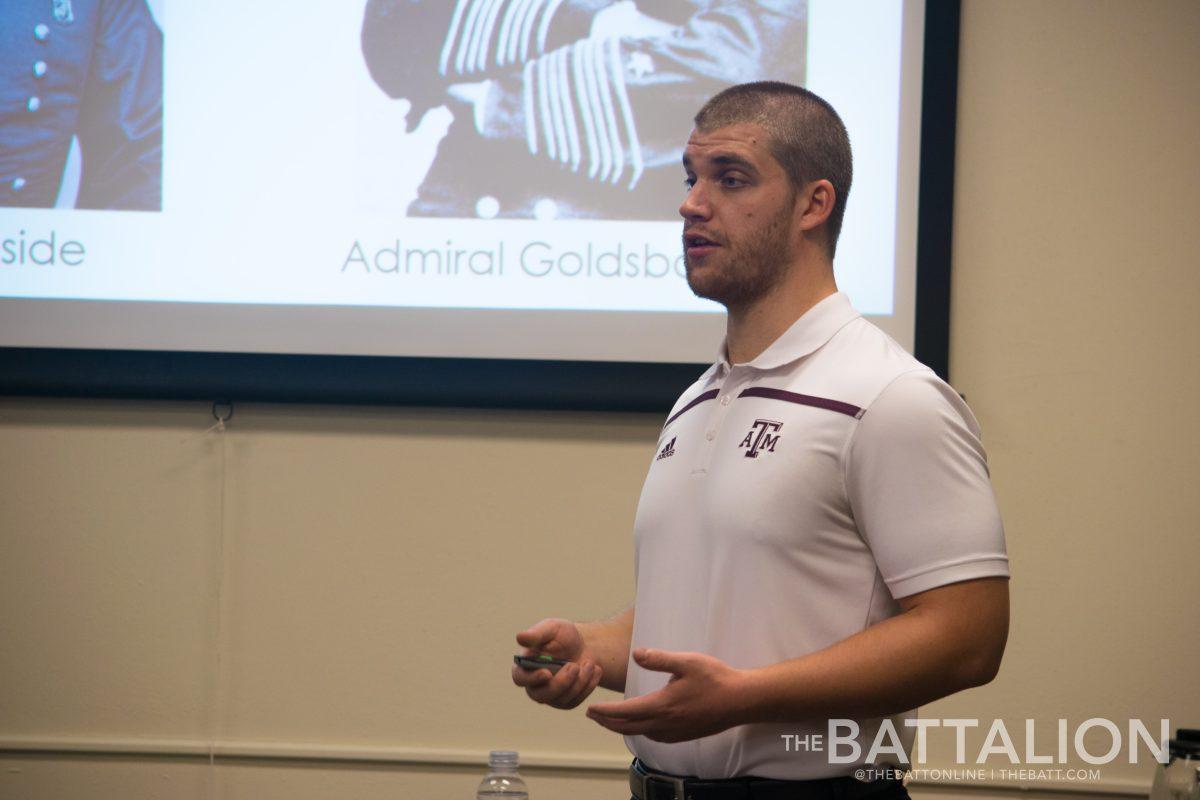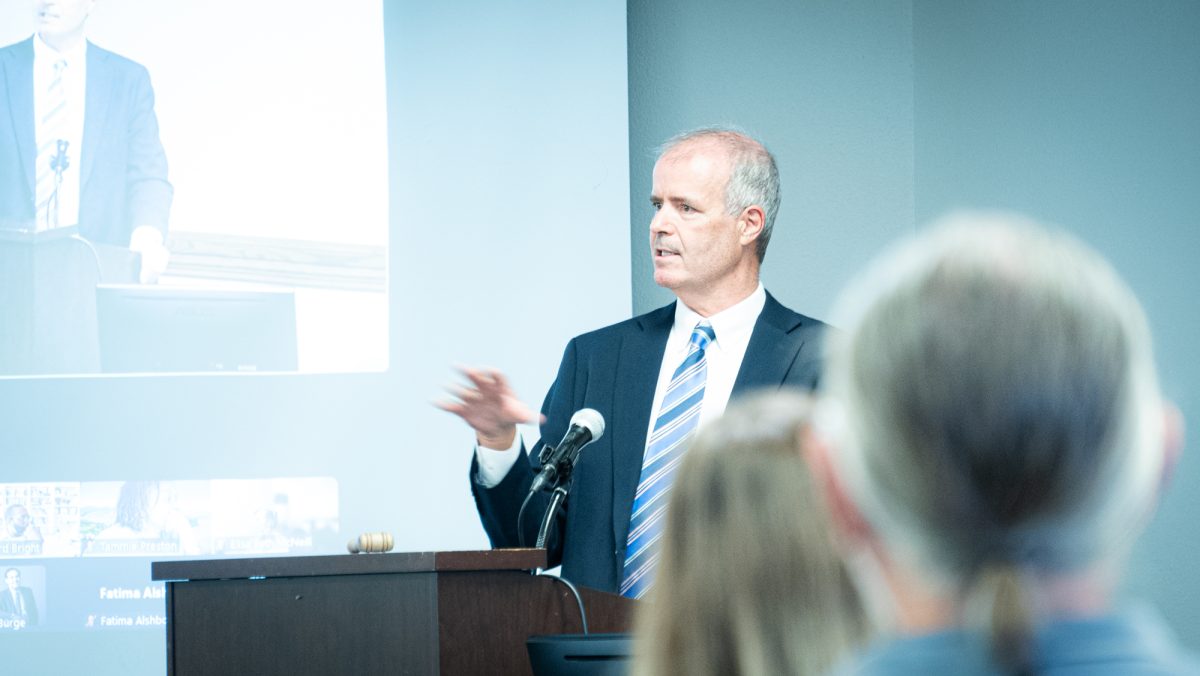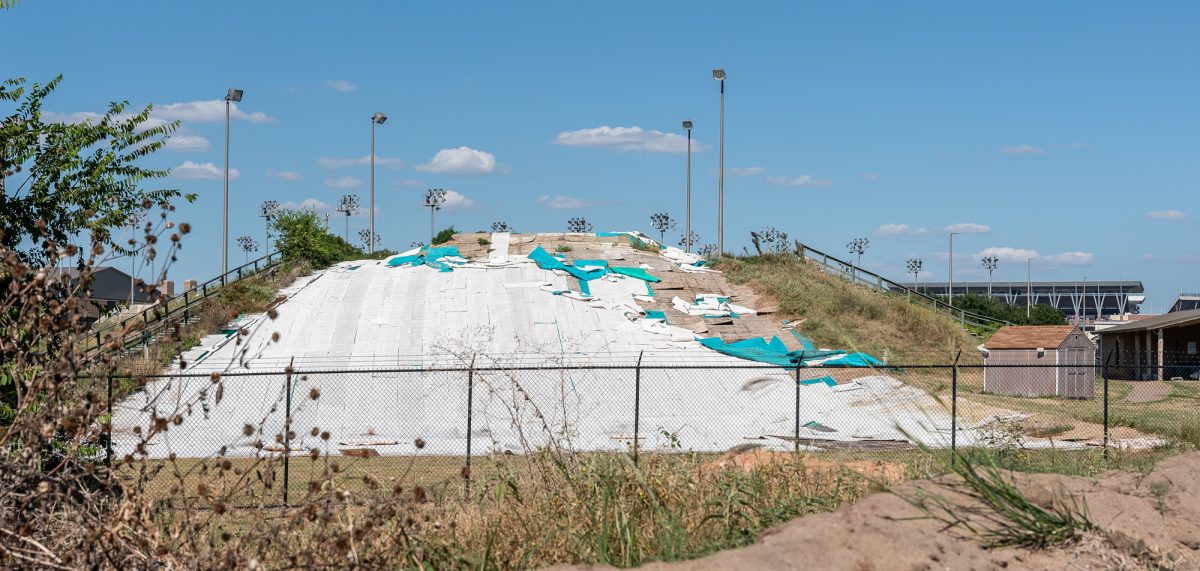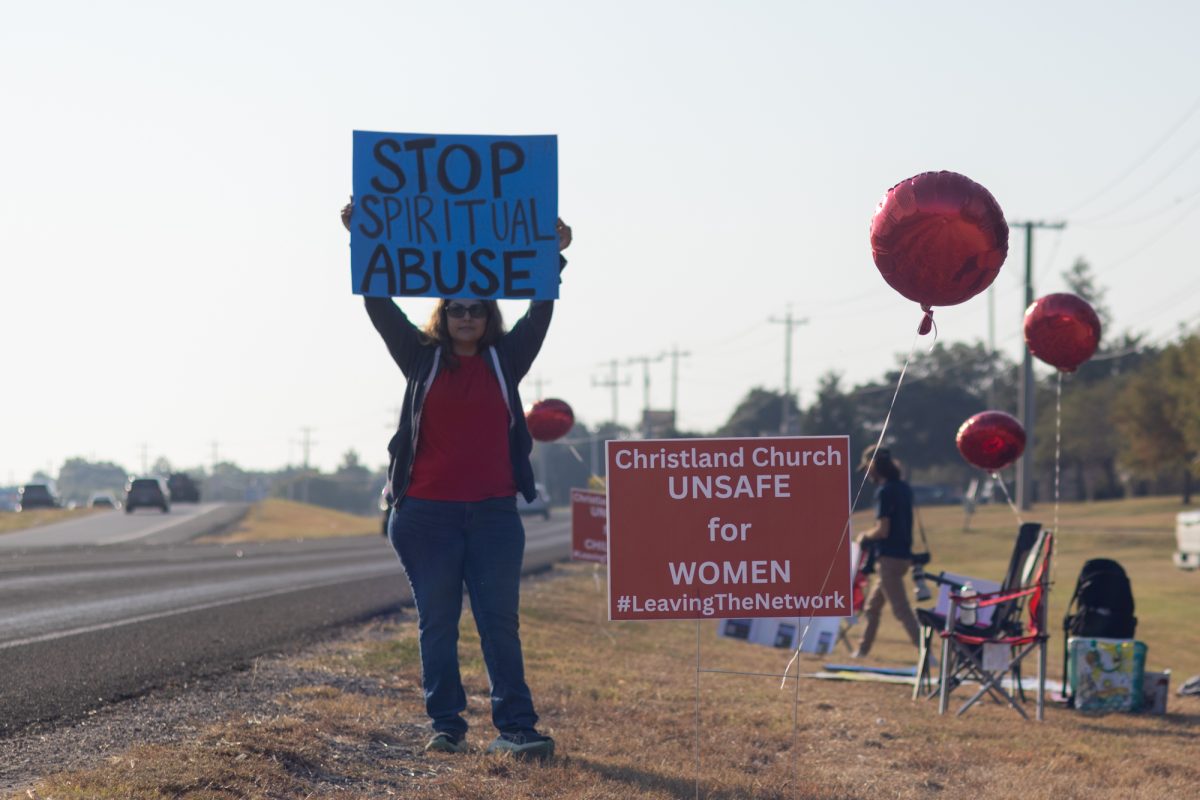During his dissertation proposal on Tuesday, a humanities researcher demonstrated how a society can be affected military strategy.
Shane Mackowicki, doctoral candidate, received a grant last year from the Glasscock Center for Humanities Research. Mackowicki studies American military history with an emphasis on the American Civil War. Furthering his studies from his master’s thesis at Texas A&M, Mackowicki introduced his proposal for future research on the victory of General Ambrose Burnside of capturing the island of Roanoke. Through humanities research, Mackowicki conveyed how this victory affected North Carolinians during the entirety of the Civil War.
“North Carolina always felt that as long as the war lasted, that it had essentially been left to wither on the vine, that Virginia had sort of subsumed the Confederate war effort and that everything that went on in North Carolina was a distinctly secondary thought,” Mackowicki said.
North Carolina was a hotbed of conflicting societal and military issues during the Civil War, according to Mackowicki. He said this hotbed was created by multiple factors including uncertainty of slave displacement and citizen loyalty, an occupation of Roanoke Island by the Confederacy and the Union, and localized guerilla warfare.
“There was always a threat that if the Union strengthened their army in North Carolina they could advance and really take any point they wanted to all the way up to the state capitol in Raleigh,” Mackowicki said. “North Carolinians were very, very upset about this.”
Ian Abbey, previous Glasscock research fellow, graduated in August with a Ph.D. from the Department of History and attended the event in support of Mackowicki, who he is friends with. Military history has its own following that has not historically meshed with the rest of academic history, according to Abbey.
“Well sometimes with military history you have a lot of technical stuff involved,” Abbey said. “Also, military history has a tendency to become what I’ve heard described as ghettoized. Like, it just stays in its only little area, away from the culture, away from the more humanity-oriented aspects. So it just tends to be its own field. Although there’s a movement now to integrate that solidly into the humanities field.”
Raymond Barringer, English senior, attended the humanities lecture for credit in a course he is currently enrolled. Barringer said the story of the victory of the Union at Roanoke Island had a bigger impact than he expected as a part of U.S. history, especially for its obscurity.
“I was really interested in the fact that such a seemingly insignificant point in the United States was such a major turning point in the war,” Barringer said. “You know, It’s kind of this cascade effect that if you neglect a people group in some way you may not think is important, you end up casting a negative look on yourself and on your reign, so to speak.”
In terms of connecting humanities to history, Barringer said that studying humanities gives a better perspective in relaying history in a more personal way.
“[Humanities is] an indirect way of taking a look at the human core,” Barringer said. “A lot of times people aren’t as good at telling you why they feel something, but you can interpolate from what they’ve written and what they’ve said and what they actually feel.”
Researcher presents dissertation proposal, focus on often overlooked Civil War story
February 28, 2018
Photo by Photo by Alyssa Denson
Doctoral candidate, Shane Mackowicki, presented his plans for his future research in the American Civil war.
0
Donate to The Battalion
Your donation will support the student journalists of Texas A&M University - College Station. Your contribution will allow us to purchase equipment and cover our annual website hosting costs.









